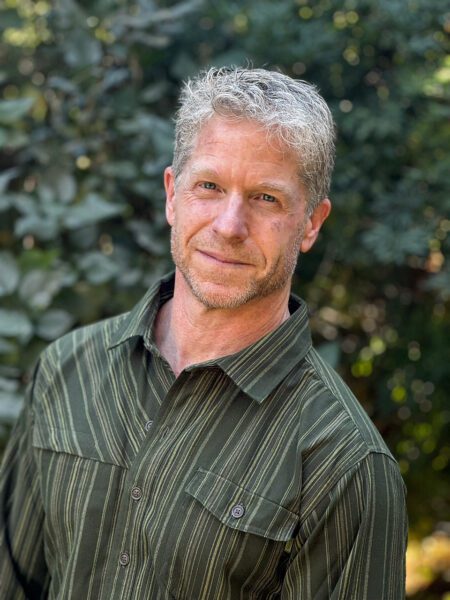Diversity in the Boardroom is Still Important
A conversation with the founder of Premiums for the Planet

Premiums for the Planet is an Impact Entrepreneur nominee for the 2025 Earthshot Prize.
Insurance firms today find themselves between a rock and a hard place. Despite controlling an estimated $40 trillion in assets globally and generating $7 trillion in premiums each year, insurers’ ability to pay out on claims – and still offer reasonable premiums to customers – is increasingly at threat due to climate change and the increased intensity of hurricanes, wildfires and floods.

Brad Stevenson
In 2024, there were a record 54 separate weather events that caused at least $1 billion in economic losses, led by Hurricane Helene ($75 billion) and Hurricane Milton ($35 billion). Globally, natural disasters resulted in a combined $368 billion in losses ($145 billion in insured losses), making it the ninth year in a row that losses exceeded $300 billion.
However, despite these sobering figures, many insurance firms continue to invest billions of dollars into the industries fueling climate change, exacerbating the very risks that insurance policies are supposed to protect against. For instance, the U.S. insurance industry had an estimated $582 billion in fossil fuel investments as of year-end 2019. Another report from Insure our Future on the 30 leading insurers and reinsurers found that many continue to invest in the expansion of fossil fuels and none of them are currently aligned with a 1.5°C target. This creates a vicious cycle as more natural disasters lead to higher claims, thereby decreasing access to insurance and driving up premiums.
For Brad Stevenson, founder of Premiums for the Planet, this disconnect between how insurers approach underwriting and how they put their capital to work in the financial markets presented a unique business opportunity. In this Q&A, Stevenson shares his vision for redirecting insurance premiums toward climate-friendly investments and how financial institutions can act as powerful levers for positive change.
Financial institutions everywhere must end lending, underwriting, and investments in coal anywhere. And they must commit to end financing and investment in exploration for new oil and gas fields, and expansion of oil and gas reserves – investing instead in the just transition in the developing world.” – U.N. Secretary General António Guterres
Q: What motivated you to want to transform finance?
Brad: I spent most of my career in consulting, working with different organizations to develop strategies for sustainable business. I also ran a newspaper in Aspen, Colorado for a while. I never really thought about the role of finance until a few years ago when I was working with a close friend to develop a film about his cancer and how that diagnosis, and the recognition of his limited time, accelerated his sense of purpose, passion and perseverance for causes in his life. As we were fundraising for the film, we came across a bank that was very committed to addressing climate change, saw a parallel of urgency and purpose, and was eager to work with us on the film. That fortuitous moment set off a journey where I began to see the connection between finance and climate justice, and especially the role of financial institutions like banks and insurance firms. I realized that most organizations that care about sustainability probably aren’t thinking about their banking or insurance providers and whether their assets are being used to support a habitable planet.
In 2018, I started convening several advocacy groups, brands, influencers and responsible banking leaders to discuss how to integrate banking decisions into the sustainability supply chain for any business. This movement led to the creation of the 1% for the Planet personal checking account, which lets consumers support environmental nonprofits through their everyday banking. The result was a groundswell of businesses that wanted to align their banks with their values.
Q: What gave you the idea for Premiums for the Planet?
Brad: During the early part of the pandemic, I had a lot of time to really think about what drives economic decision-making. I realized that if there’s one lever or choke point for what happens in a market economy, it’s insurance because you can’t operate a business without it. The structure of the insurance industry also makes it more compatible for speed and scale than other financial sectors. So, I wanted to figure out a way to shift the behaviors of the insurance industry through market-based solutions, which I didn’t see anyone else trying to do.
Most organizations that care about sustainability probably aren’t thinking about their banking or insurance providers and whether their assets are being used to support a habitable planet.
I began developing the business in 2020 and formally launched in late 2021. Our theory of change is that the best way to shift the insurance sector is to harness intrinsic motivations and incentives. By harnessing the collective power of climate-conscious companies, we can amplify the demand for sustainable insurance practices that better align with global climate goals.
Q: What’s the process look like for an interested company?
Brad: We operate as a membership organization because it allows us to pool the premiums of like-minded businesses to advocate for more responsible investing and underwriting from insurance carriers. Membership is completely free for qualified organizations, and we try to match each member with a curated insurance plan that meets their needs.

We specifically look for insurance brokerages that are best-in-class based on geography and sector expertise, including regions of the U.S. and sectors like regenerative agriculture. We then match insurance brokerage that is going to be equal (if not better) to an existing insurance provider. Companies often end up with better insurance policies and improved economics. We’ve found that many of our members had previously been on outdated insurance programs due to longstanding broker relationships or suboptimal program design with less sophisticated or lower performing brokerage organizations, and through our network, they gain access to more competitive, effective and values-aligned options. Meanwhile, we engage carriers on behalf of our members to drive meaningful changes in how insurers approach investing and underwriting.
Q: What have been your most effective selling points to members?
Brad: I think it’s a few different things. First and foremost, we’re not adding any costs for members – we’re adding value. We’re taking money these businesses are spending on insurance anyway and redirecting that capital towards impact. We’re essentially adding brand value to something that most people see as just a cost of doing business.
I also think the recent LA wildfires and other natural disasters have been a wake-up call for a lot of folks, both in terms of the intensity and speed of climate change as well as the role of insurance. There’s been a lot of media coverage around insurance and climate, especially as more insurers are forced to leave certain markets or increase premiums. The increased risk of these natural disasters means that the cost of insurance will go up and access to insurance will go down. The more people see the impact of insurance in their day-to-day lives, the more they start to think about insurance differently.
Q: What’s surprised you the most since you started Premiums for the Planet?
Brad: When I started on this journey, few of the people I talked to wanted to hear about insurance. It was a lot of ‘Why are we talking about this?’ But now it’s one of the most pressing issues for a lot of people, especially as natural disasters are forcing many businesses to reevaluate their insurance policies.

I’ve also been surprised by just how many people are eager to help and want to support the business. This even includes people working within the insurance industry, many of whom have strong feelings about sustainability and who see and get what we’re trying to do.
Q: What are your future plans for the business?
Brad: The priority right now is continuing to build the member base and reaching scale. We’re specifically focused on purpose-driven sectors where there is most likely to be demand for a different approach to insurance coverage, especially among companies looking to align their financial supply chain with their values, which we see as a growing trend.

We’re also starting to expand to markets outside the U.S. and eventually want to work towards targeting individuals who want to change how their insurance premiums are being invested.
The ultimate goal is a future where insurance companies are competing against each other to lead the way on sustainability by actively investing in renewable energy and other innovative climate solutions. We believe we’re fostering that kind of competition by offering economic incentives for insurers to align with long-term climate goals.
Related Content
Comments
Deep Dives

Featuring
Clarisse Awamengwi
IE Correspondent
July 17 - 12:00 PM EST

Featuring
Russell McLeod
July 24 - 12:00 PM EST
RECENT
Editor's Picks
Webinars
News & Events
Subscribe to our newsletter to receive updates about new Magazine content and upcoming webinars, deep dives, and events.
Become a Premium Member to access the full library of webinars and deep dives, exclusive membership portal, member directory, message board, and curated live chats.
At Impact Entrepreneur, we champion fearless, independent journalism and education, spotlighting the inspiring changemakers building the Impact Economy. Diversity, equity, sustainability, and democracy face unprecedented threats from misinformation, powerful interests, and systemic inequities.
We believe a sustainable and equitable future is possible—but we can't achieve it without your help. Our independent voice depends entirely on support from changemakers like you.
Please step up today. Your donation—no matter the size—ensures we continue delivering impactful journalism and education that push boundaries and hold power accountable.
Join us in protecting what truly matters. It only takes a minute to make a real difference.
0 Comments